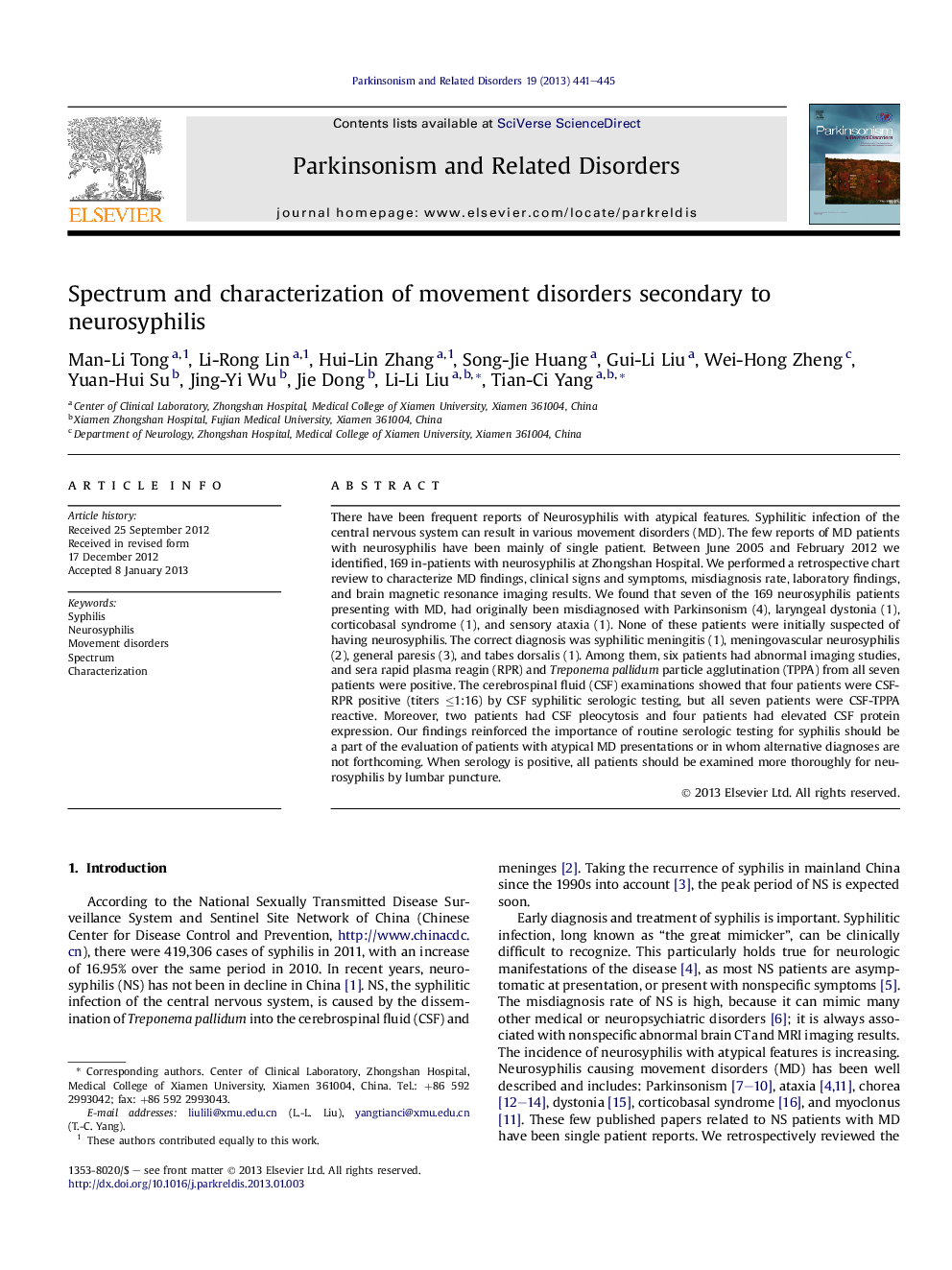| Article ID | Journal | Published Year | Pages | File Type |
|---|---|---|---|---|
| 10745826 | Parkinsonism & Related Disorders | 2013 | 5 Pages |
Abstract
There have been frequent reports of Neurosyphilis with atypical features. Syphilitic infection of the central nervous system can result in various movement disorders (MD). The few reports of MD patients with neurosyphilis have been mainly of single patient. Between June 2005 and February 2012 we identified, 169 in-patients with neurosyphilis at Zhongshan Hospital. We performed a retrospective chart review to characterize MD findings, clinical signs and symptoms, misdiagnosis rate, laboratory findings, and brain magnetic resonance imaging results. We found that seven of the 169 neurosyphilis patients presenting with MD, had originally been misdiagnosed with Parkinsonism (4), laryngeal dystonia (1), corticobasal syndrome (1), and sensory ataxia (1). None of these patients were initially suspected of having neurosyphilis. The correct diagnosis was syphilitic meningitis (1), meningovascular neurosyphilis (2), general paresis (3), and tabes dorsalis (1). Among them, six patients had abnormal imaging studies, and sera rapid plasma reagin (RPR) and Treponema pallidum particle agglutination (TPPA) from all seven patients were positive. The cerebrospinal fluid (CSF) examinations showed that four patients were CSF-RPR positive (titers â¤1:16) by CSF syphilitic serologic testing, but all seven patients were CSF-TPPA reactive. Moreover, two patients had CSF pleocytosis and four patients had elevated CSF protein expression. Our findings reinforced the importance of routine serologic testing for syphilis should be a part of the evaluation of patients with atypical MD presentations or in whom alternative diagnoses are not forthcoming. When serology is positive, all patients should be examined more thoroughly for neurosyphilis by lumbar puncture.
Related Topics
Life Sciences
Biochemistry, Genetics and Molecular Biology
Ageing
Authors
Man-Li Tong, Li-Rong Lin, Hui-Lin Zhang, Song-Jie Huang, Gui-Li Liu, Wei-Hong Zheng, Yuan-Hui Su, Jing-Yi Wu, Jie Dong, Li-Li Liu, Tian-Ci Yang,
